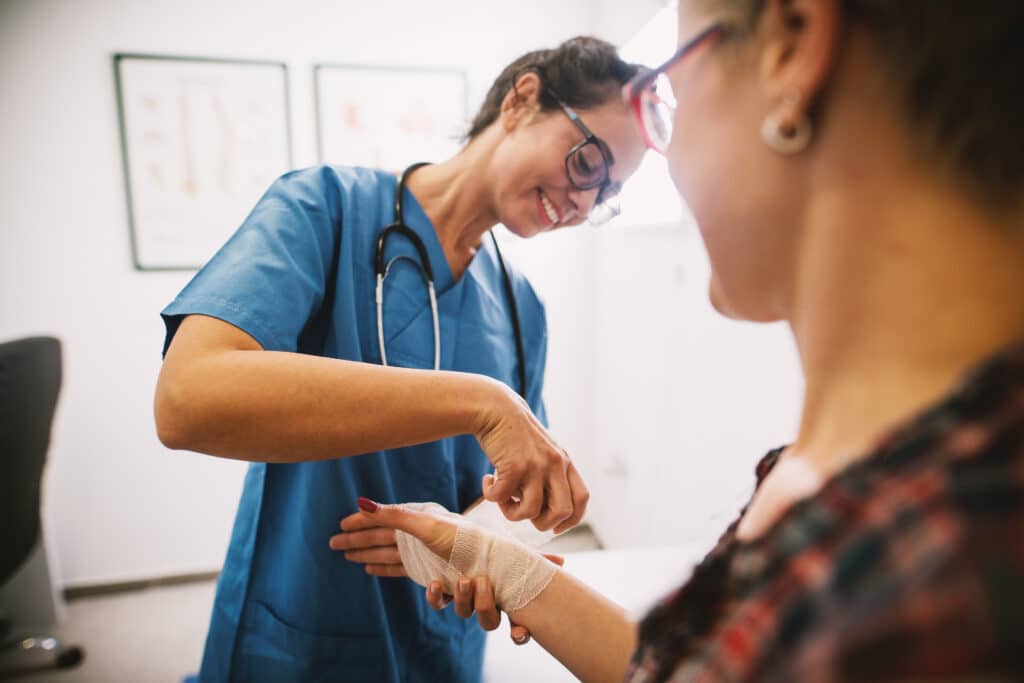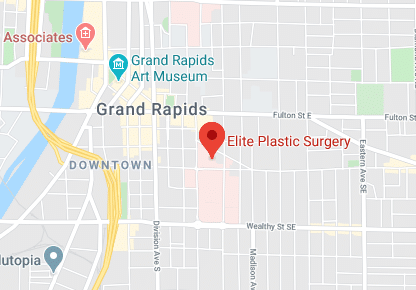
What Is Complex Wound Care At Elite Plastic Surgery?
A complex wound is one that has not responded to the conventional means of treatment. Complex wound surgery procedures include flap surgery or skin grafts to cover wounds from radiation therapy, vascular disease, trauma or cancer resection. This type of surgery is often the most challenging surgery we perform and often utilize the most up-to-date microsurgical techniques.
What Is A Flap?
Flap reconstructive surgery is performed under general anesthesia. During the procedure, a piece of tissue is either partially or completely removed from a donor site and positioned over the recipient site. There are two types of flaps that are commonly performed: the local flap and the free flap.
Local flaps are performed by rotating or transposing nearby tissue to an adjacent wound. This tissue remains attached to its original blood vessels and is moved directly, laterally, or at a pivot to fit over the recipient site.
Free tissue flaps are taken from an area of the body and attached to new vascular sources that are in the area of the wound. the small vessels from the free tissue flap are then hooked up to vessels near the area of the wound with the use of a surgical microscope.
What Is A Skin Graft?
Skin grafting is a procedure through which only the skin, without any tissue beneath it, is moved from one spot on the body to another. The skin graft does not have its own blood supply, and can only be laid down on a wound that has healthy, vascularized tissue at its base. Often this involves utilizing only the outermost layers of skin so that adequate skin remains at the donor site. At other times, this will involve utilizing the entire thickness of the skin from the donor site if the size of the skin graft needed is quite small.
After obtaining donor tissue, the surgeon carefully spreads the tissue over the bare wound. The graft may be secured with stitches or with gentle pressure from a padded dressing. The donor site is also covered with a sterile dressing for several days.
What Types Of Wounds/Traumas Can Be Corrected With Flaps Or Skin Grafts?
Flaps and grafts may be recommended to address extensive traumatic wounds or surgical wounds such as those that may occur after skin cancer treatment. Tissue loss due to severe infection such as necrotizing fasciitis may also require a flat or graft to heal properly.
How Will I Know If My Wound Needs A Flap Or Skin Graft?
Your primary care physician or dermatologist may know that you are in need of complex wound care either because you have an existing wound that is not healing properly or because you are scheduled for treatment such as Mohs surgery that is expected to leave a surgical wound that would not heal on its own. For patients treated with Mohs skin cancer surgery, flap techniques tend to produce excellent results. During your consultation at Elite Plastic Surgery, your doctor will discuss which technique, flap or graft, would best meet your needs and why.
Recovery After Complex Wound Care
Recovery from wound care surgery looks different for every person. The extent of recovery depends on the type of surgery that was performed. A standard graft or flap may need specific care for several weeks, such as wearing a dressing for 1 to 2 weeks and continuing to protect the graft from potential injury for another few weeks. Patients may be prescribed certain exercises after wound care to assist in achieving optimal tissue flexibility. Thorough post-surgical instructions are provided to each patient based on their surgery and area of treatment.
Are There Any Risks To Wound Care Surgery?
Risks of surgery involving skin grafts and flaps include:
- Adverse reaction to anesthesia
- Infection
- Bleeding
- Poor healing
- Fluid accumulation
Our team discusses all aspects of the surgical process during the consultation visit, to include potential risks that are relevant to your particular situation. Knowing the potential risks of wound care surgery gives us the opportunity to minimize them using meticulous operative techniques.
Will I Need To Come Back For A Follow-up Visit?
It is likely that you will have at least one follow-up visit depending on the type of wound care you have received. Stitches may need to be removed a week to ten days after surgery. Your doctor will also want to observe how your tissue graft or flap is healing.
Will I Need To Take Certain Medications After Surgery?
Patients may need to adjust medications prior to wound care surgery or take certain medications after their procedure. Most commonly, patients are prescribed pain medication to manage comfort well during their recovery. Medications that may be recommended are discussed during the consultation visit or planning phase of surgical treatment as they may differ depending on the needs of each patient.
Schedule a Consultation
We are proud to offer reconstructive surgery techniques to patients in the Grand Rapids and Byron Center areas. For more information on complex wound care, call (616) 459-1907 to schedule an appointment.


